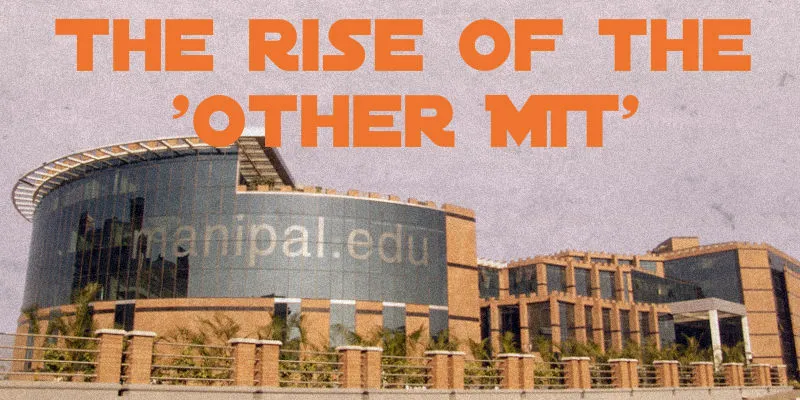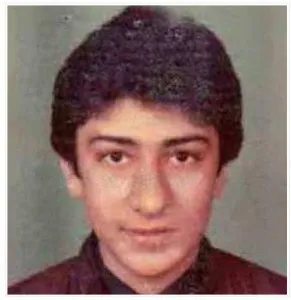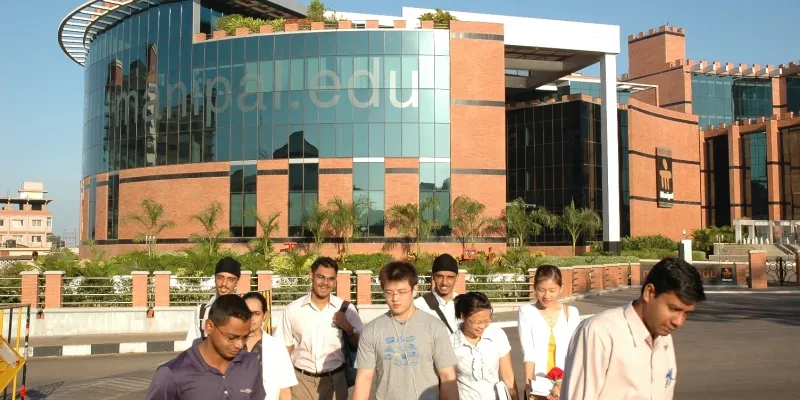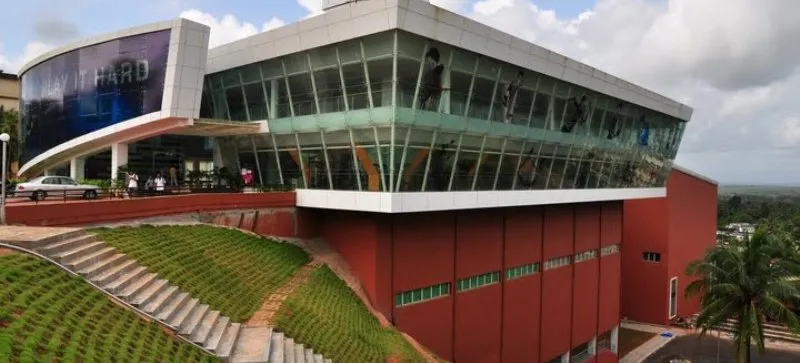Rise of the 'Other MIT', Manipal now has two Fortune 500 CEOs
Get over IITs and IIMs! There is a new celebrity and it's a quaint and cozy student town on the southwest coast of India. The 35,000-odd people that stay in Manipal are blessed with one of the most picturesque surroundings. Nestled between the Arabian Sea and the Western Ghats, it accords its students the privilege of some of the best weekend getaways. But this is not why Manipal is the talk of the town.

It is because Manipal now boasts of two Fortune 500 CEOs. Three months ago the whole town went into celebratory mode after the announcement of one of their own as the head of Microsoft. Satya Nadella, who was appointed as the third CEO of Microsoft, is an alumnus of the engineering college - Manipal Institute of Technology (MIT) - often referred to as the 'other MIT' after the prestigious Massachusets Institute of Technology. Nadella studied at the college from 1984-88.
Related story: 7 reasons for Nadella's appointment as Microsoft CEO

Yesterday, in another big news for the town, Rajeev Suri who has been heading the profit-making networks division of Nokia for some time now was announced as the CEO. Rajeev has been entrusted to drive Nokia into newer territories after it sold its devices division to Microsoft in a multi-billion dollar deal.
Rajeev Suri was just an year junior to Satya Nadella at MIT. Both did their engineering in the Electronics and Communication engineering department of the college.
"Satya and Suri provide strong testimony to the fact that at MIT the emphasis is on holistic development of students. Students who leave the portals of this engineering institute are quality products. Therefore, it is no coincidence or accident that these two MITians have made it big,” said the director of MIT, Dr Vinod V Thomas.
From Mannu palla (mud lake) to Manipal
Almost 60 years ago, Manipal was just a barren piece of wasteland, a plateau where wild animals roamed around freely. A physician, an educationist, a banker and above all, a philanthropist at heart, Dr TMA Pai decided to change that. His vision for Manipal was to make it a seat of higher education and learning.
Perhaps his dedication towards healthcare was what led to the setting up of the Kasturba Medical College, the first private medical college, in 1953. And, with that began the story of Manipal University. In 1957 came the engineering college, the dental college, pharmacy college etc. All the colleges were brought under the single umbrella of MAHE (Manipal Academy of Higher Education) and in 1993 it became only the fifth private institution to be accorded a deemed university status. Today, known as Manipal University, it constitutes of over 20 institutions, presence in Bangalore, Mangalore and Jaipur in India and Malyasia, Dubai and Antigua abroad.

The Manipal advantage
But what makes Manipal (and by extension, its students) truly unique is the diversity among its students, unmatched by any other Indian institution. The students come from a wide range of backgrounds - over 60 different nationalities, from middle class to elite and speak over 100 languages.
The education provided to students is complete and holistic and extra-curricular activities take up a significant portion of their time at the university. With several world-class food courts, air-conditioned hostels and even a multiplex that was recently opened, Manipalites have a host of facilities that only a few other institutions in India have. The international standard sports complex could be the best in India and even South Asia.

An interesting statistic that crops up is that every fifth doctor in Malaysia has been trained at Manipal's medical school.
"It seems to me that the air in Manipal is extraordinary. In all of my four years at MIT, I have seen that the most talented and creative people converge here. I won't be surprised if you would see more Satyas and Rajeevs from this place," quips Priyadeep Sinha a 2011 graduate who runs his own startup Gyan Lab from Bangalore presently. Priyadeep had started Gyan Lab in 2011 when he was still pursuing his Mechanical Engineering degree from the institution.
Startup culture in Manipal
Priyadeep's was the first startup to be provided incubation at the then-newly-launched incubator, Manipal University Technology Business Incubator (MUTBI). Since its inception three years ago, MUTBI has provided incubation to eighteen startups out of which two have graduated from the incubator.
The startup culture has become quite prevalent in the college and students are coming up with several ideas and creating businesses out of it. Though most (not all) of them are part-time ventures which end up being pocket money churners for the students, this culture helps create the DNA of entrepreneurship. The college is quite encouraging of the trend.
Other alumni
Vikas Khanna, the award winning Michelin Starred Indian chef, restaurateur, filmmaker, humanitarian and the host of the TV Show MasterChef India and MasterChef India is an alumnus of the hotel management school, WGSHA.
Apart from Satya and Rajeev, the institution has several other alumni holding key positions. Some are - Anant J. Talaulicar, Mechanical '84, Executive Chairman of the Board and Managing Director of Cummins India Ltd; PV Shridhar, E&C '79, director at Apple; Glenville Da Silva, Chemical '79, Vice President of Business Development Asia, at Volvo Construction Equipment. Others include Banmali Agrawala, CEO and President, GE South Asia; Ashok Krishnamurthy, former VP, Juniper Networks; Founder and CEO, Xsigo Systems, acquired by Oracle for $220M, Arun Shenoy, Grammy award nominated musician, Pankaj Oswal, Indian-Australian businessman, Chairman and CEO of Burrup Holdings; Rajeev Chandrasekhar, MP (Bangalore Urban); Chairman and CEO of Juniper capital; FICCI President; former CEO and founder of BPL mobile.
The rise of the private institutions that graduate the major chunk of students in India can only augur well for the country. Manipal is surely up there on the list with BITS-Pilani and could soon lead the pack if more and more alumni startup.
What do you think about the rise of Manipal? Are you a Manipal alumni/student? What, according to you, makes the experience unique?
Related Story:
Kartik Mandaville, coder, product developer from the other MIT







